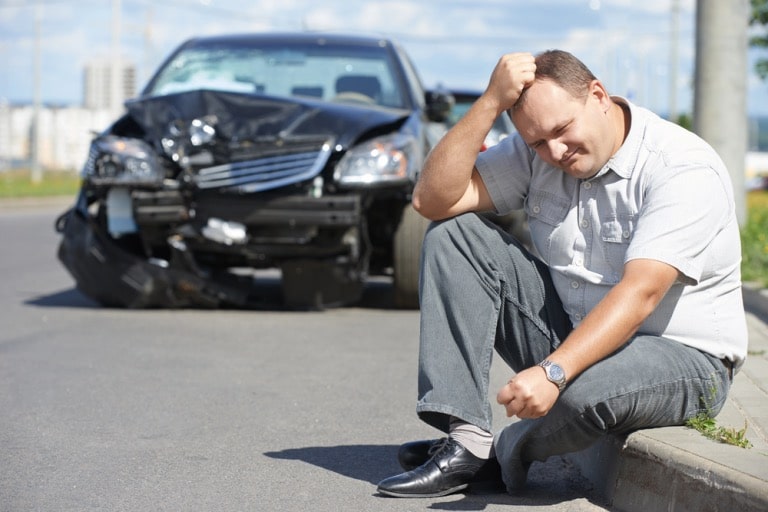Car accidents can be traumatic experiences that affect more than just your physical well-being. The emotional and psychological aftermath is just as important to address. In this blog post, we’ll explore the psychological impact of car accidents and offer practical strategies to help you cope and recover. Understanding and managing these effects is crucial for your overall health and well-being.
Understanding the Psychological Impact
When a car accident occurs, it’s common to experience a range of immediate reactions. You might feel shocked or disbelieving about the event. Your body’s stress response might trigger heightened alertness, making it difficult to relax.
In the short term, you could deal with intrusive thoughts or flashbacks of the accident, and some might struggle with sleep disturbances or nightmares. Over time, these experiences can evolve into more serious issues, such as Post-Traumatic Stress Disorder (PTSD) or a fear of driving, which can linger long after the physical injuries have healed.
Common Psychological Symptoms After a Car Accident
The psychological toll of a car accident can manifest in various ways. Emotionally, you might experience mood swings, irritability, or even depression. Physically, stress can result in symptoms like increased heart rate, fatigue, and muscle tension. Behaviourally, changes might include a shift in daily routines or social withdrawal.
Recognising these symptoms is the first step toward addressing them effectively. Then, you’ll be in a better state of mind when handling your claim. For information on handling a car accident without going through insurance, click on the link.
Coping Strategies
When dealing with the aftermath of a car accident, immediate coping techniques can make a significant difference. Practising mindfulness and grounding exercises can help you stay present and manage acute anxiety. Breathing exercises are also beneficial for calming your nervous system during moments of intense stress.
Seeking professional help is a key aspect of recovery. Therapy or counselling can provide valuable support, and Cognitive Behavioural Therapy (CBT) is particularly effective for those struggling with post-accident trauma. Support networks, such as talking to friends and family or joining support groups for accident survivors, can also provide comfort and understanding.
Self-Care Practices
Taking care of your physical health is crucial in managing psychological stress. Regular exercise and a balanced diet can boost your mood and energy levels. Incorporating relaxation techniques like yoga and meditation into your routine can help manage stress and promote overall well-being. Mentally, journaling can be a powerful tool for reflecting on your feelings and tracking your recovery progress. Setting small, achievable goals can also help you regain a sense of control and normalcy in your life.
Managing Anxiety About Driving Again
If you’re feeling anxious about driving again, gradual exposure can help. Start by practising relaxation techniques before getting behind the wheel. Slowly reintroduce driving into your routine, beginning with short trips in familiar areas. If you find it helpful, consider taking an advanced driving course or refresher lessons to build your confidence on the road. Consulting with a psychologist or counsellor specialising in trauma can also provide targeted strategies for overcoming driving anxiety.
What Information Should I Provide for a Claim?
While professionals will take over your claim, you still have to provide them with information from the beginning. This is going to set the tone and provide a picture of what happened. Let’s take a look at the information that’s necessary for a successful claim.
About Your Vehicle
Some personal details are always necessary to make a claim. For instance, this includes your name and address. Then, you’ll need to go into detail about your vehicle. You should describe what your car is, including the make and model, as well as when you purchased this vehicle. Then, you should detail how it was damaged in the accident. This is going to be necessary for making a claim and knowing how much compensation is required. It can also help with establishing fault.
Details of the Incident
Next, you need to explain what you think happened in the accident. This isn’t just your opinion. You need to state facts about what happened at the time. For example, where were you going at the time of the crash? What were the roads like and the traffic? There has to be a story of what went on so that experts can think about what happened.
About the Third Party
Hopefully, you’ve gathered some information about the other driver involved after the accident. For example, this can include their name and address, as well as their number plate. This is going to help you make a claim and know what insurance company will be part of the process.
Information from Witnesses
Was there anybody present for your road traffic accident? Perhaps this was other drivers or pedestrians. Either way, you want to gather information from them at the time. Then, when it comes to making a claim, you can contact them to ask about their view of events. This can work in your favour when the other driver is at fault.
Conclusion
Recovering from a car accident involves addressing both your physical injuries and your psychological well-being. By acknowledging the psychological impact and implementing coping strategies, you can move towards a healthier, more balanced recovery. Don’t hesitate to seek help and use available resources to support your journey. Remember, taking care of your mental health is just as important as your physical recovery.








